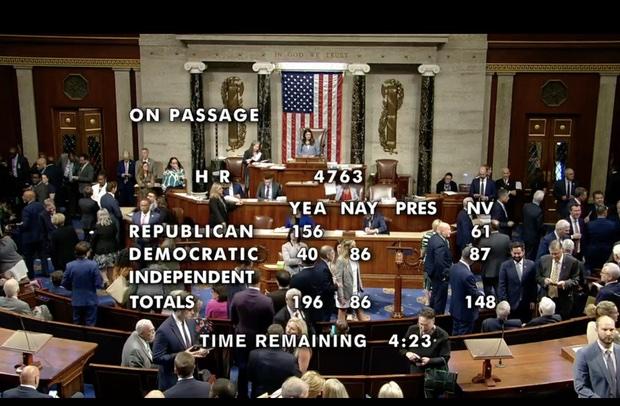Understanding H.R. 4763: The Financial Innovation and Technology for the 21st Century Act

In a significant move toward regulating the rapidly evolving digital asset landscape, the United States Congress has introduced H.R. 4763, officially known as the Financial Innovation and Technology for the 21st Century Act. This bill aims to bring much-needed clarity and oversight to the world of digital assets by defining the roles of major regulatory bodies in the U.S.
Key Objectives of the Bill
The primary goal of H.R. 4763 is to delineate regulatory authority between two pivotal organizations: the Commodity Futures Trading Commission (CFTC) and the Securities and Exchange Commission (SEC).
-
CFTC's Role: The bill assigns the CFTC the responsibility of overseeing cash or spot markets for digital commodities. This means that for digital assets classified as commodities, the CFTC will have regulatory jurisdiction, ensuring fair trading practices and protecting market integrity.
-
SEC's Authority: The SEC's role is clarified regarding digital assets considered securities. The bill specifies conditions under which a digital asset would be regulated as a security. This distinction is crucial for investor protection and maintaining orderly markets.
Criteria for Decentralization
A notable feature of the bill is its definition of what constitutes a decentralized blockchain. According to H.R. 4763, a blockchain is considered decentralized if:
- No single person or entity has unilateral authority to control the blockchain or its usage.
- No issuer or affiliated individual holds control over 20% or more of the digital asset or its voting power.
This definition aims to ensure that truly decentralized projects are not unfairly subjected to centralized regulatory oversight.
Exceptions and Collaborative Rulemaking
The bill also outlines specific exceptions to SEC regulation for certain digital assets that meet predefined criteria. This provision is designed to foster innovation while maintaining necessary safeguards.
Furthermore, H.R. 4763 mandates that the CFTC and SEC work together to issue joint rules. This collaboration is intended to define key terms and create exemptions for dually registered exchanges, preventing redundant regulatory requirements and promoting a more streamlined regulatory environment.
Implications for the Digital Asset Market
The introduction of H.R. 4763 marks a pivotal step in the evolution of digital asset regulation in the United States. By clearly defining the roles of the CFTC and SEC, the bill seeks to provide a balanced framework that encourages innovation while protecting market participants.
This legislative effort reflects the growing recognition of the importance of digital assets in the modern economy and the need for a structured regulatory approach to manage their growth effectively. As the bill progresses through Congress, its impact on the digital asset market will be closely watched by industry stakeholders and regulators worldwide.
Stay tuned for more updates on this critical development in the regulation of digital assets.
- चाडपर्वहरू
- धर्म र संस्कृति
- संगीत र कला
- कथा र साहित्य
- भोज तथा भतेर
- विज्ञान र प्रविधि
- चलचित्र र नाटक
- ग्याजेट तथा गेम्स
- जनता र राजनीति
- यात्रा तथा गन्तव्य
- जनावर र पक्षीहरू
- स्वास्थ्य र इस्फुर्ती
- प्रकृति तथा संसार
- अटोमोबाइल/उड्डयन
- बजार/व्यापार/लगानी
- ठुल्दाई. बिसेस


